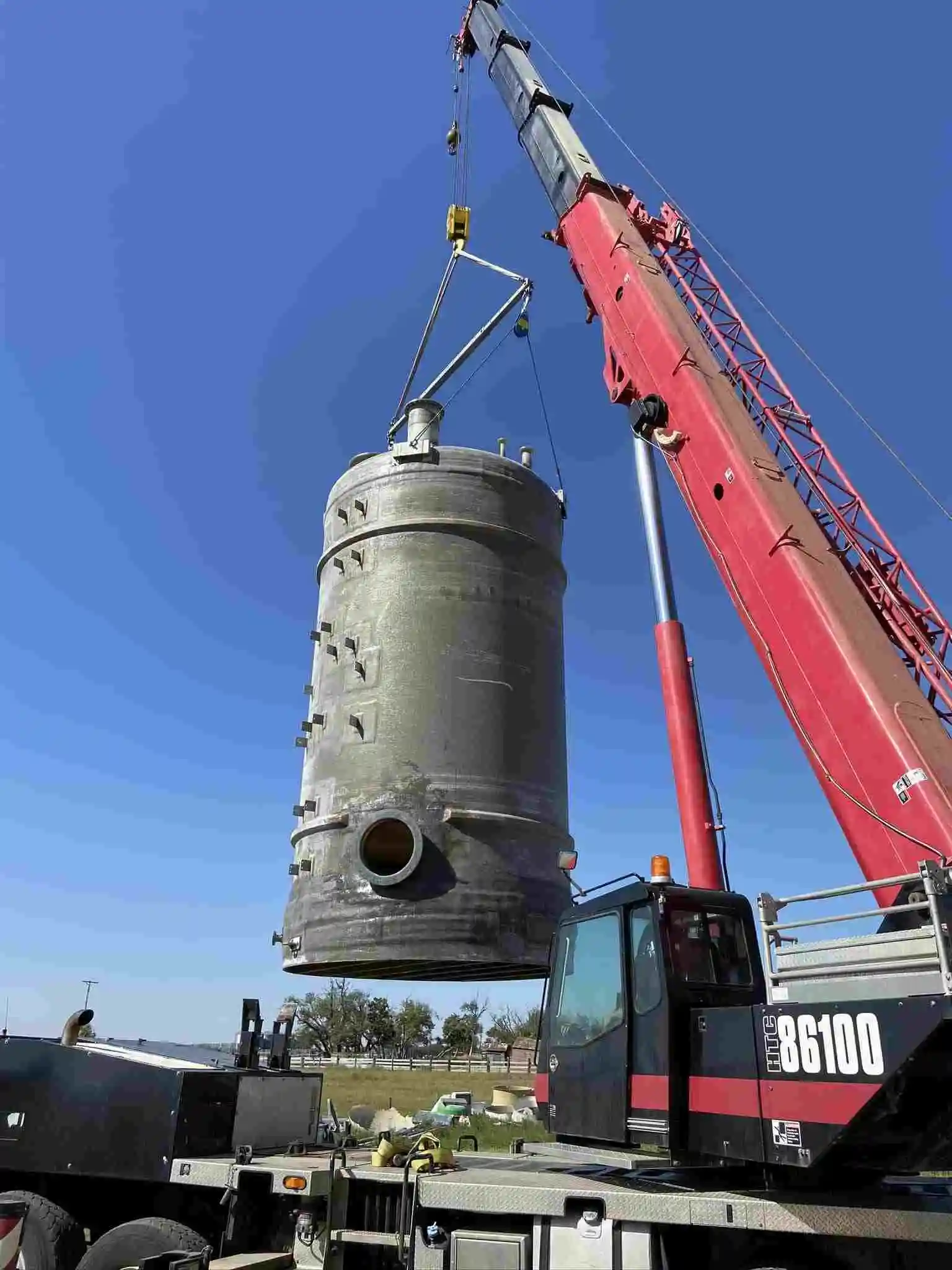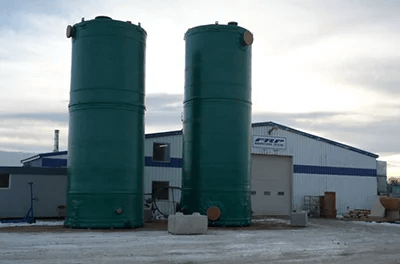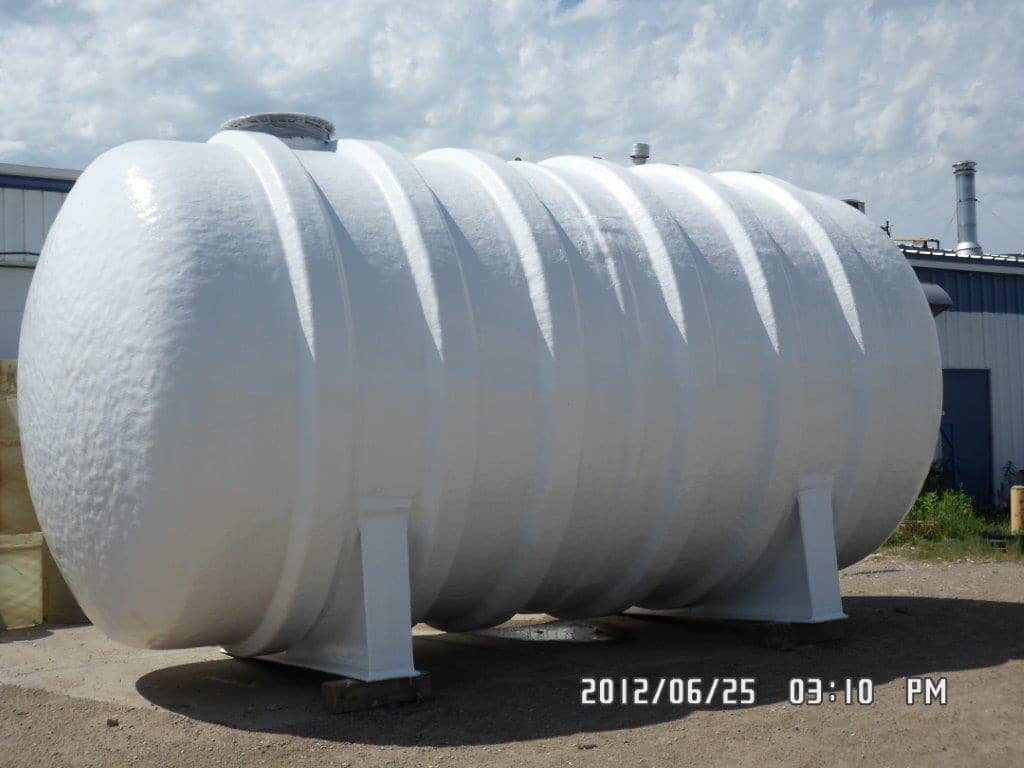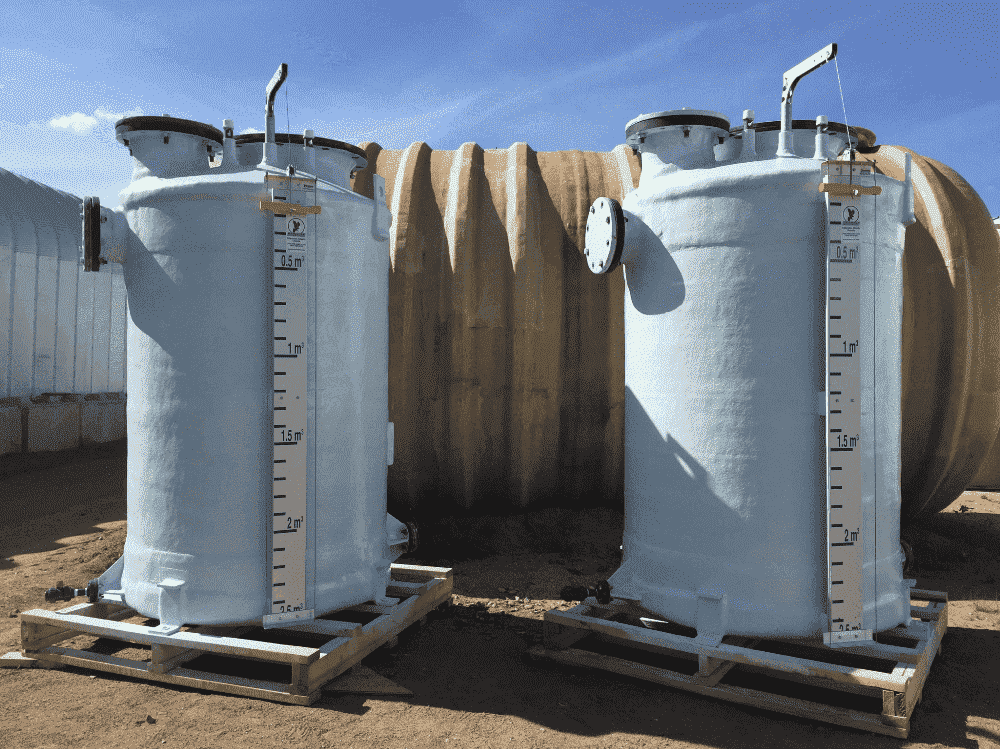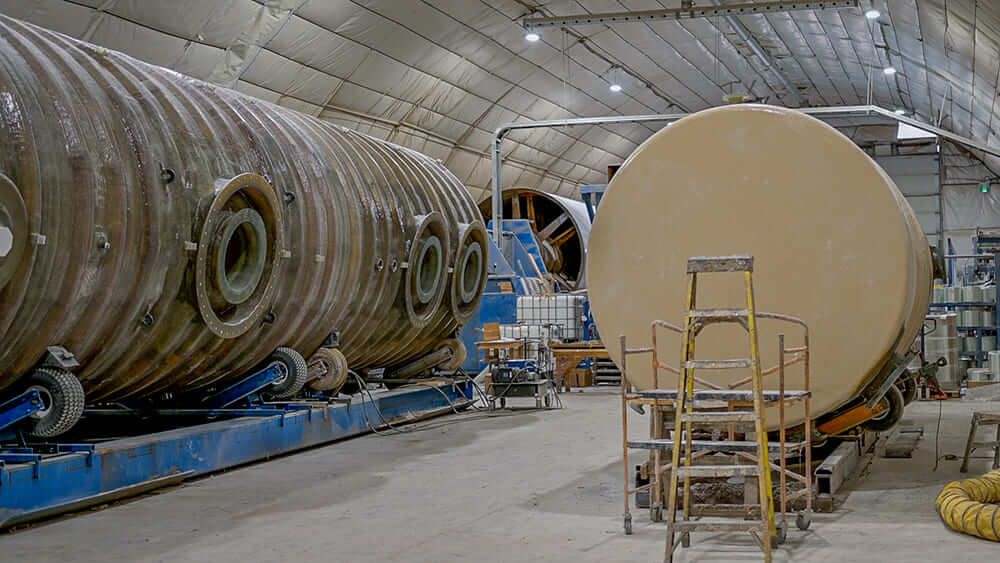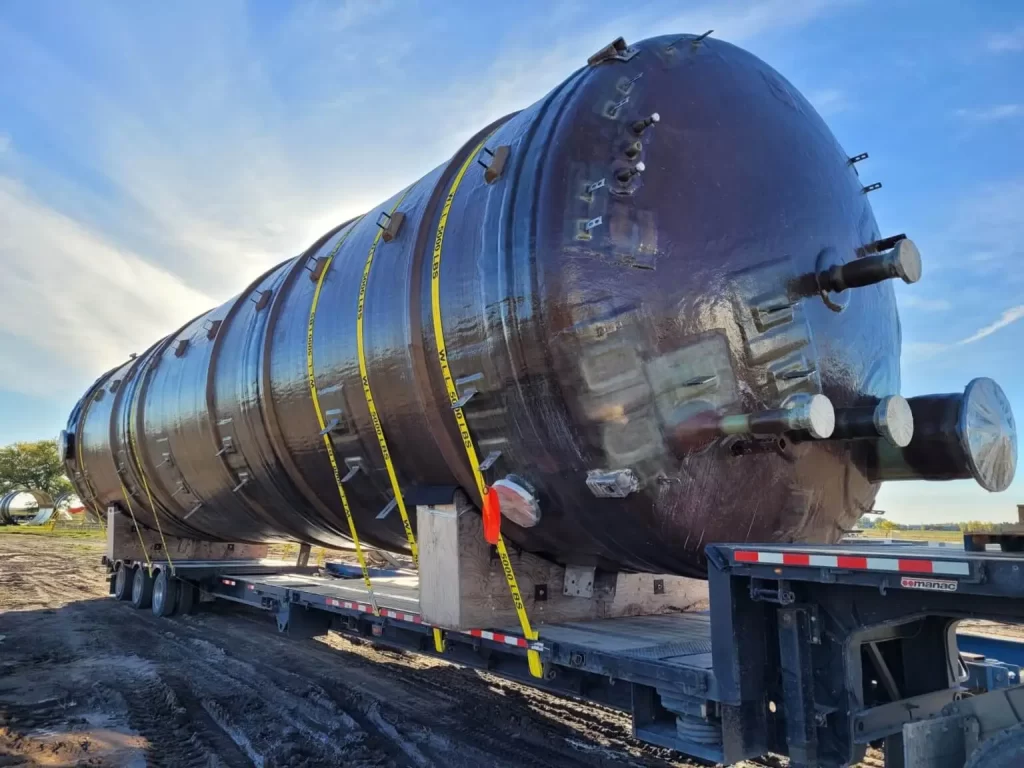When you’re working on a site that requires equipment with high resistance to the chemical materials you engage with on a daily basis, you want to know that equipment will stand up against even the most corrosive of waste products. Fiberglass reinforced plastic tanks are often used for wastewater on oil fields or mining sites and for storing highly corrosive substances because of their high resistance to corrosion. Here’s why it’s a good idea to work with fiberglass reinforced plastic tanks when you’re working with highly caustic liquids!
Resin
It all starts with the type of resin you use to construct the FRP tank or storage unit. Using an Orthophthalic Polyester resin is perfect for projects that only really need resistance to “dirty water” and other non-corrosive materials, but for jobs that need actual chemical resistance, using an Isophthalic Polyester or Vinyl Ester is going to be the best decision. Isophthalic Polyester is a versatile product used in an array of FRP operations because of its corrosion resistance. Vinyl Ester resins endure against alkalis and acids as well as oxidizing chemicals, outlasting most competitors by years or even decades. For the job site that needs resistance to corrosion as well as being able to stand the heat of extreme temperatures, Premium Vinyl Ester can store solvents or mixtures of chemicals, acids or other caustics without breaking down.
Fiberglass Reinforced
When we construct our tanks, we reinforce them with a fiberglass product, meaning we’re reinforcing with literal glass fragments. Common fiberglass reinforcement methods include chopped glass, woven rovings and veils. Chopped glass is formed into mats with a continuous strand, woven rovings is a mat constructed of woven bunches of small glass strands and veiling uses very fine layers of material which builds a corrosion barrier chock full of resin. Depending on what the final product’s intended function determines the type of reinforcement needed to do the job right.
Chemical Resistance
Because of how customizable a tank made of fiberglass reinforced plastic can be, our storage tanks can stand up to almost any caustic materials or waste product produced on your site. What makes FRP tanks so valuable is their unmatched resistance to corrosion and their ability to withstand major temperatures variants. This is especially useful when working on job sites that require tanks to do it all, like oil and gas. FRP tanks are perfect for storing sulfuric acid, sodium hypochlorite, sodium hydroxide, sodium nitrate, chlorine or ethylene glycol and will store these chemicals as well as many others with ease. To top it all off, FRP tanks require virtually no maintenance, they have exceptional thermal and electrical insulation abilities and have a very impressive strength to weight ratio.
Whatever caustic liquids or chemicals you may be working with, we’ve got a tank that will help make your job easier. Trust that our products are built to outlast steel alternatives and can be customized to fit your exact needs. Get in touch with us today to get a quote and to get started with your FRP products!

